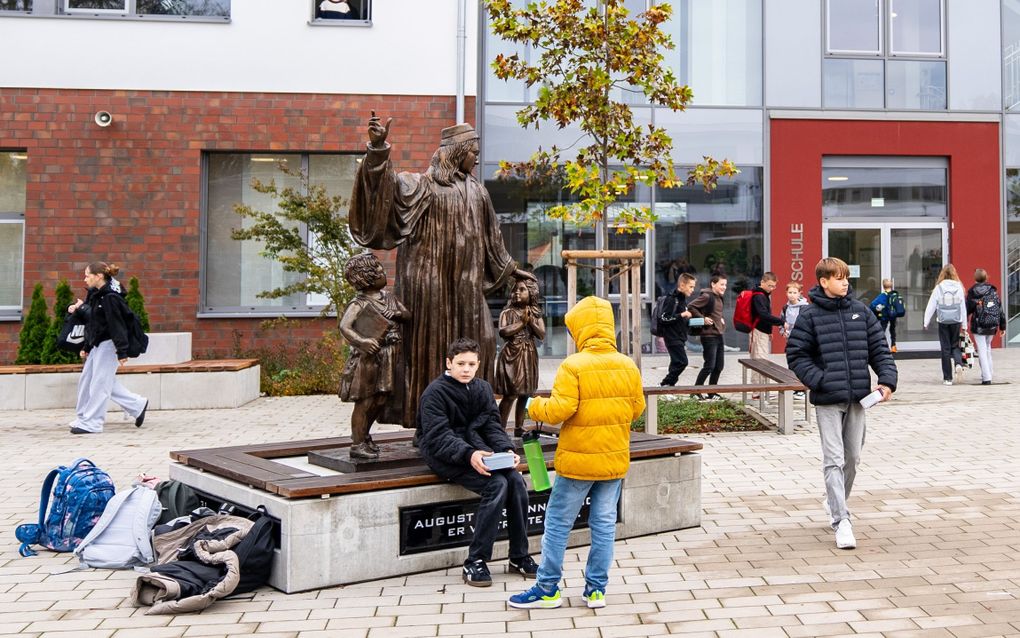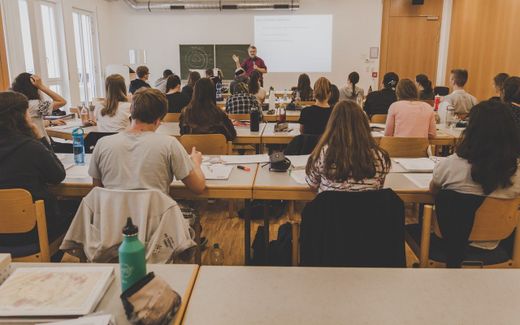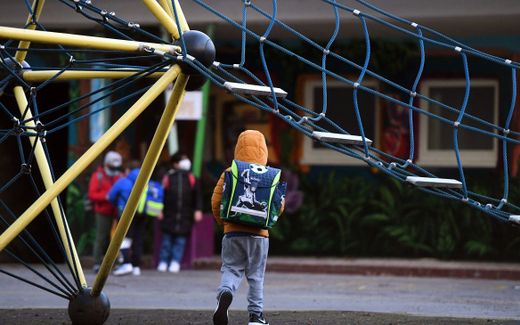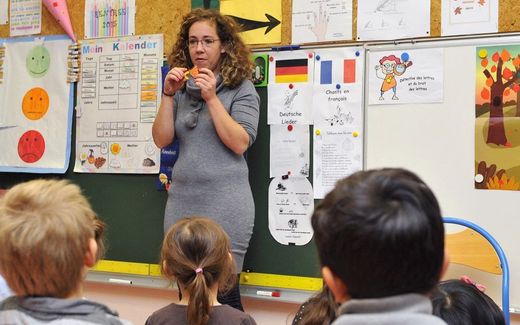How August Hermann Francke became a pioneer of German Christian education

The new statue of August Hermann Francke in front of the school in Detmold that is named after him. Photo CSV Lippe
Central Europe
Whoever visits the August Hermann Francke Comprehensive School in Detmold will see a new statue of a man gazing down on two orphans. Read here why he was so important for German education.
Whoever visits the August Hermann Francke Comprehensive School in Detmold will see a new statue of a man gazing down on two orphans. This is why he was so important for German education.
Education was only for the privileged. Poor children and orphans did not fit that category and shut out from any kind of formal schooling. Francke was the person in Germany that started to change this.
But first, who was he? Francke was first and mostly known for his Pietism. Born in Lübeck in 1663, he studied at universities in Erfurt and Kiel, where he got to know the teachings of Pietism. These would continue to influence a great deal of his life.
Trouble
After his conversion in 1687, he placed much emphasis on the importance of sanctification in the life of a Christian. He also found it very important to make the Bible as accessible as possible to the common people, just as Luther had done.
Francke started his career in education with a high position of Privatdozent at the university of Leipzig. He worked and taught at different institutions but got himself into trouble because of his Pietistic beliefs. He was expelled from the University of Leipzig and became a deacon in Erfurt instead. However, there, his preaching led to heated discussions, and in 1691, he was expelled from the city.
He spent the remaining part of his life teaching at the University of Halle and working as a pastor at a nearby town's church.
Neglected children
It was during that time that Francke showcased more interest in the education of the less fortunate. Children who grew up in poor families remained rather uneducated and seemed hopelessly stuck in a cycle of ignorance and crime. In 1694, Francke wanted to change that.
Therefore, he started to teach neglected children who visited him once a week to collect alms. In 1695, he took his initiative to the next level by founding an official school for the poor, Augst Hermann Francke Einrichtungen Paderborn writes.
It was the start of a successful invention. Also, wealthy families became interested in Francke’s schools. They were willing to pay fees if their children could attend the classes.
In response, Francke founded a separate school for better-off citizens in addition to his school for the poor. Later, he started two boarding schools, an orphanage, and a programme for students who taught other pupils.
By the time of his death, his schools had hired 165 teachers and four inspectors who taught more than 2,200 students. In addition, his orphanage was inhabited by 134 children who were supervised by 10 staff members.
Pedagogy
Francke’s schools were unique in the sense that they had a new philosophy of teaching. In them, he put the teachings of Pietism into practice. That already started during his time in Leipzig, where he established the collegium philobiblicum where students met to study the Bible intensively, both in a philosophical and in a practical manner.
Later on, when he founded his own schools, he implemented his own ideas on bringing up youth as well, Mr. L.D. van Klinken, part of Driestar Educatief, wrote. The underlying principle of his education philosophy was that by “shaping the mind, children ought to be brought up to God’s honour.”
His principles gave him a leading position in the education field. According to Van Klinken, Francke is seen as the representative of the pietistic pedagogy. Characteristic for his principles is the pessimistic view of children. He was convinced that children should not have too much free time and ought not to be too happy. In addition, they should be protected against worldly temptations.
Teacher training
The opinions on his approach to education differ. Some believe that his beliefs were too one-sided and led to too much isolation of children. Nevertheless, the extent of his influence on modern education in Germany and beyond cannot be denied.
His way of schooling, for example, led King Frederick William I to make schooling compulsory in Prussia in 1717. In addition, his ideas about instructor education laid the foundation for organised teacher training in Germany, CSV Lippe states on its website.
Specifically, Francke was important for Christian education because he emphasised the importance of Biblical training. For example, he abolished the Aristotelian oath when he was a rector in Halle. That meant that university teachers there were no longer obliged to swear to “defend and propagate the old and true, namely Aristotelian, philosophy”.
Guidelines
In his “Pädagogische Schriften”, Francke describes five important characteristics of Christian teachers:
Keep the chief goal of education in sight
Teachers must, at all times, keep an eye on the main goal of education: bringing children to a real and lively knowledge of God and their Saviour, Jesus Christ. They must know that they are responsible for the soul of every child entrusted to their care.
Practise self-examination
Every teacher needs to examine him- or herself to ensure that he or she possesses a solid foundation upon which their own faith is built. After all, a teacher’s behaviour functions as an example for pupils to see what a Christian life looks like.
Be a real shepherd instead of a mercenary
Teachers who are true Christians do not work as mercenaries but as good and faithful shepherds. They will take good care of the lambs entrusted to them and do their job diligently, faithfully, and happily to God’s honour and the good of the children.
Continually engage in faith and prayer
Christian teachers should not trust in their own abilities and skills, but in God’s powerful support and blessing. They should carry the children in their hearts and bring them before God in their prayers to ask for their eternal wellbeing. Teachers should also ask God humbly for fruits of their labour.
Have a fatherly mind
Teachers should not discipline their pupils by harshly dealing with them. Instead, they should have a fatherly attitude towards their children. Therefore, they should not be unfriendly but be loving, albeit serious, when teaching. Furthermore, they should, like a father, never prefer one child over another, seek the good for all children and faithfully teach all of them, admonish them, punish them and bear with them patiently. Never should they let their anger get the worst of them and call the children names or use inappropriate terms.
Immortality and timelessness
Wolfgang Stock, secretary general from the VEBS, the German Association for Evangelical schools, writes in his prayer newsletter that it is pleased about the new statue of August Hermann Francke in front of their school in Detmold. It points out that this is the second statue of the German education reformer – there is another one in Halle an der Saale. According to the VEBS, the bronze monument symbolises the immortality and timelessness of Francke’s trust in God.
While Francke is placed on a pedestal in Halle, the statue in Detmold is deliberately kept low. Stock explains: “Anyone can learn from him, and it only takes 'the step of faith' to dare to trust in God and do the same as Francke.”
Related Articles











